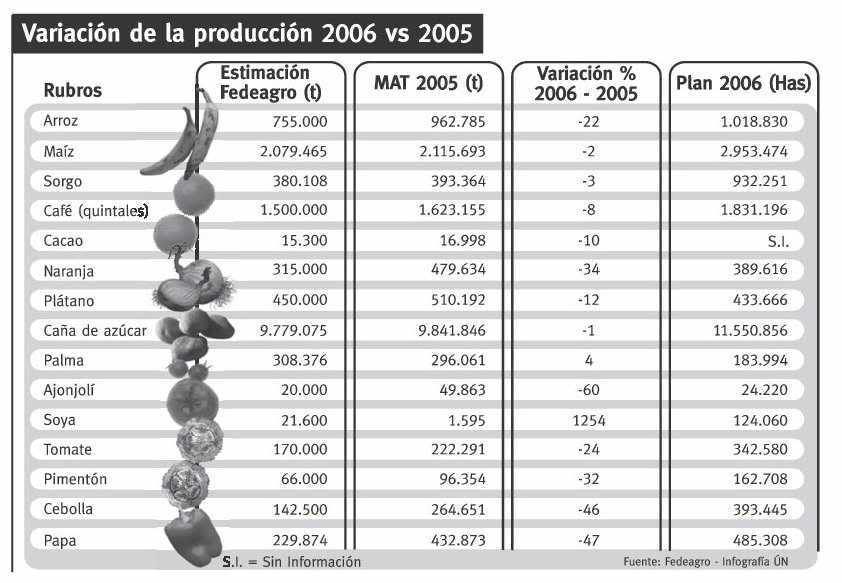Wednesday, December 20, 2006
This is what an over-valued currency does to you.
The Venezuelan national currency, the Bolivar, has been increasing sharply in value relative to other currencies for some time. This is so because inflation inside Venezuela has been in the double digits, yet the exchange rate (the number of Bolivars it takes to buy a dollar or euro) has remained unchanged. So while a Bolivar buys 15% less of goods and services in Venezuela it still buys you the same number of dollars because the exchange rate has been stuck at 2,150 Bs. to the dollar.
This makes imported goods cheaper for Venezuelans than the goods they themselves make in their own country. The result is few other countries will want to buy goods made in Venezuela because they will be comparatively expensive while Venezuelans will happily buy goods from abroad because they cost less.
Maybe this all sounds like mumbo jumbo economics but today in Ultimas Noticias there was a little article that showed the reality of this is a big way. The article pointed out that although the economy has been booming, essentially growing at 10% for the past three years, agricultural production is down in Venezuela 8% this year. This chart shows how production has dropped for various crops:

You can see what is happening with some major crops - rice is down 22%, corn is down 2%, coffee is down 8%, oranges are down 34%, and plantains are down 12%. The only things to have gone up are soy (yuck!) and oninions. Are Venezuelans eating less? Absolutely not, they are eating more. It is just that the food is being imported instead of being grown domestically.
Who would have guessed that a nationalistic government which has built tractor factories, expropriated unused land, and talked endlessly about "internal" development would by presiding over such a decline?
But it is. Not because it doesn't care nor because all of those policies just mentioned are failures. Rather, it is pursueing economic policies that, unintentionally, undo a lot of other good work. Letting their currency become so overvalued is one such policy. As long as Venezuela has a market economy, and regardless of how much "21st Century Socialism" is talked about it still does, it must pay attention to the fundementals of economics. It isn't all mumbo-jumbo, just look at where the food is coming from.
|
This makes imported goods cheaper for Venezuelans than the goods they themselves make in their own country. The result is few other countries will want to buy goods made in Venezuela because they will be comparatively expensive while Venezuelans will happily buy goods from abroad because they cost less.
Maybe this all sounds like mumbo jumbo economics but today in Ultimas Noticias there was a little article that showed the reality of this is a big way. The article pointed out that although the economy has been booming, essentially growing at 10% for the past three years, agricultural production is down in Venezuela 8% this year. This chart shows how production has dropped for various crops:

You can see what is happening with some major crops - rice is down 22%, corn is down 2%, coffee is down 8%, oranges are down 34%, and plantains are down 12%. The only things to have gone up are soy (yuck!) and oninions. Are Venezuelans eating less? Absolutely not, they are eating more. It is just that the food is being imported instead of being grown domestically.
Who would have guessed that a nationalistic government which has built tractor factories, expropriated unused land, and talked endlessly about "internal" development would by presiding over such a decline?
But it is. Not because it doesn't care nor because all of those policies just mentioned are failures. Rather, it is pursueing economic policies that, unintentionally, undo a lot of other good work. Letting their currency become so overvalued is one such policy. As long as Venezuela has a market economy, and regardless of how much "21st Century Socialism" is talked about it still does, it must pay attention to the fundementals of economics. It isn't all mumbo-jumbo, just look at where the food is coming from.
|
